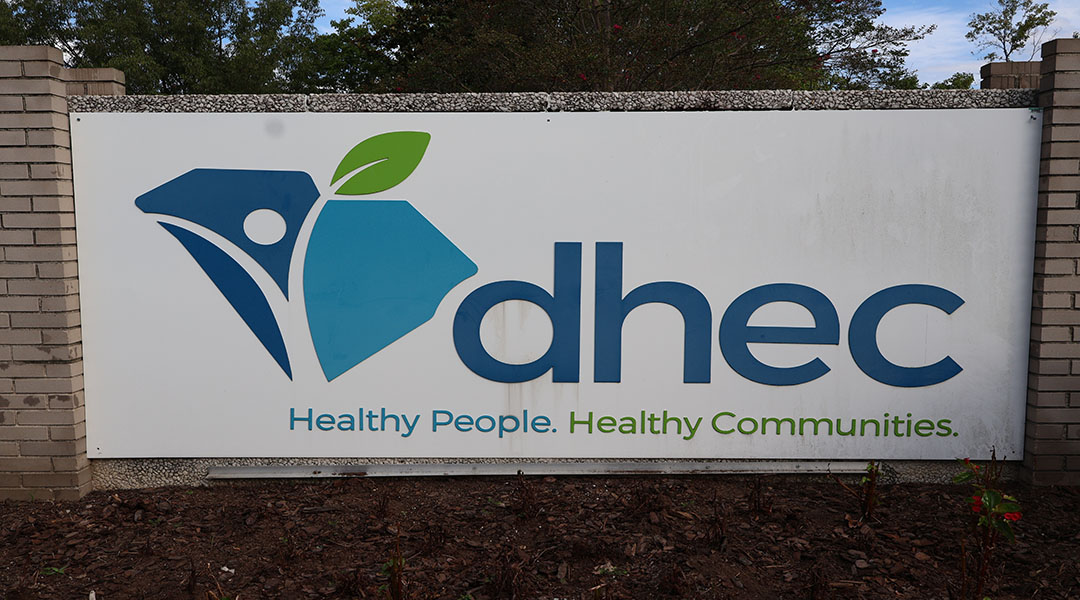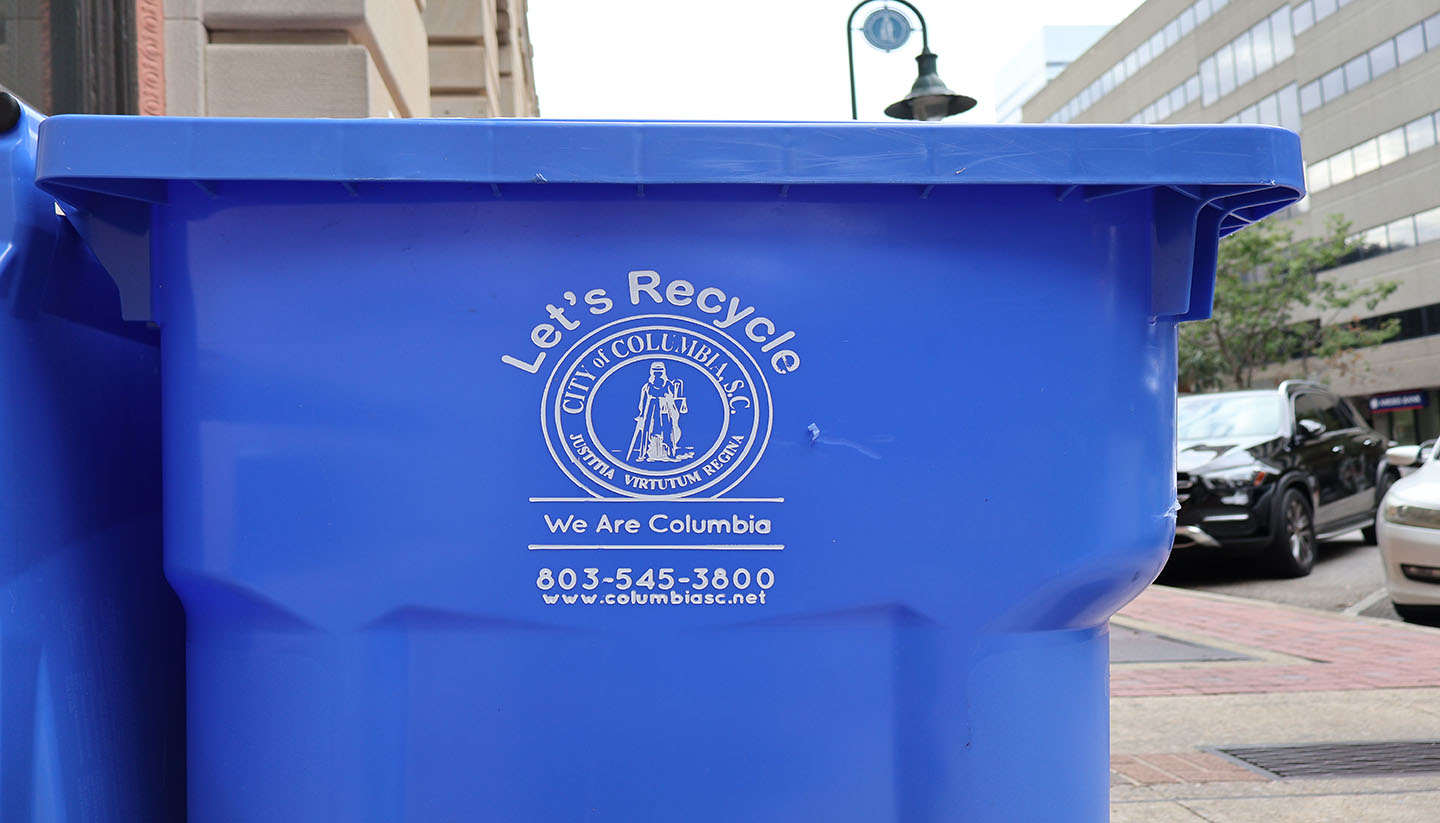An agency sign at its main office in Columbia (Photo by Camdyn Bruce/Carolina News and Reporter)
Ever wonder what’s in everyone’s trash?
State environmental officials do.
And they’re going to use part of a new federal grant to get to the bottom of the trash heap.
The money will be used to improve data collected on what’s being thrown away and what’s being recycled statewide, according to the South Carolina Department of Health and Environment Control.
Officials then will see if residents are creating any excessive waste problems and use that data to update the state’s solid waste management plan.
The hope is the state can reduce waste and recycle more.
The U.S. Environmental Protection Agency announced Sept. 13 that it was giving DHEC $592,253.
DHEC’s No. 1 priority is using the funds to do a municipal solid waste characterization study, said Richard Chesley, DHEC’s section manager for the Office of Solid Waste Reduction & Recycling.
That will provide an updated picture of what types of waste are ending up in landfills and in what quantity, Chesley said.
Better data on solid waste also, hopefully, will help DHEC improve the efficiency of the recycling industry in the state, which generates $13.5 billion annually, Chesley said.
“We gain a greater understanding of what’s being disposed of,” Chesley said. “In turn, we can focus on infrastructure and any policy gaps that are existing in South Carolina that are preventing such material from being recycled.”
DHEC will hire a consulting group to conduct the study by evaluating two different Class 3, municipal, or household trash, landfills in the state and performing a comprehensive analysis of what is in the landfills and in what quantities.
The analysis will be conducted twice at each landfill during different seasons, according to a statement provided by DHEC Senior Public Information Officer Laura Renwick.
Officials then will take the data from the municipal waste characterization study to update the state’s solid waste management plan, which hasn’t been amended since 2006.
DHEC does release annual solid waste and recycling reports. But they don’t provide nearly as much information as the municipal solid waste study will, Chelsey said.
Garbage isn’t DHEC’s only interest.
The grant funds also will be used to update DHEC’s Don’t Waste Food and its Take Charge, Be Battery Smart campaigns.
Better data from the landfill study will help the campaign understand how much food is actually being wasted so the agency can better educate the public and combat the problem, Don’t Waste Food campaign spokesperson Adah Gorton said.
“It’s really hard to track any progress when you don’t have accurate data,” Gorton said. “We’re super excited to get that, and that will include a solid number on how much food we’re throwing away.”
Gorton also said some of the funds would help expand the Don’t Waste Food campaign ambassador training program, which involves giving people the knowledge to educate their communities on how they can reduce food waste.
“We’re gonna start with just focusing on a residential level,” Gorton said. “Training them on what they can do and how to teach other people.”
The money might also create a new statewide recycle right app according to Renwick’s statement. The app will provide a comprehensive overview of recycling programs in the state.
“The app will list all of the state’s recycling programs and will include what can be recycled, where, and contact information. It also will include highlights on specific events (e.g., single-day collections, America Recycles Day) and essential information on other issues,” Renwick wrote via email. “In short, it will be a one-stop shop for residents.”
Chesley said DHEC would also try to use the funds to improve recycling for construction and building materials in the state.
“There’s a lot of construction demolition debris that’s left over after building condos, apartments, homes, whatever, that can be recovered or reused somewhere else,” Chesley said. “We’re not doing much about that right now. We certainly want to address it.”
He also said he looks forward to what DHEC will be able to do with the data from the municipal solid waste characterization study.
“There’s huge benefits, huge benefits, and that’s why I’m so excited,” Chesley said.




